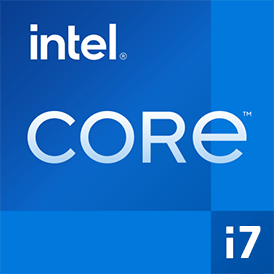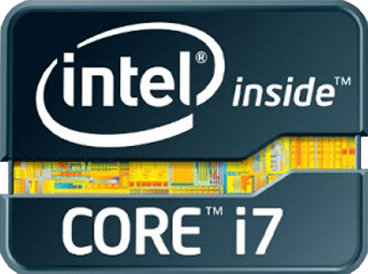
What's the best choice Intel Core i7-5820K or Intel Core i7-9700K? Which processor is faster?
We have prepared a comparison to help you choose the best processor. Compare their specifications and benchmarks.
Intel Core i7-5820K has a maximum frequency of 3.30 GHz. 6 Cores. Power consumption of 140 W. Released in Q3/2014.
Intel Core i7-9700K has a maximum frequency of 3.60 GHz. 8 Cores. Power consumption of 95 W. Released in Q4/2018.
 Reasons to consider
Reasons to consider Place in the overall ranking
(based on several benchmarks)
Common positions Intel Core i7-5820K CPU in popular benchmarks, for comparison with other models.
 Reasons to consider
Reasons to consider Place in the overall ranking
(based on several benchmarks)
Higher clock speed
Around 8% better clock speed
More number of cores
About 1.33 times more cores
Higher turbo clock speed
Around 27 % better overclocked clock speed
Performance per watt
About 0.68 times less performance per watt
Common positions Intel Core i7-9700K CPU in popular benchmarks, for comparison with other models.
 Intel Core i7-5820K
Intel Core i7-5820K

Background information about the processors being compared, series, generation and market segment.
Basic parameters such as number of cores, number of threads, base and turbo frequency, and cache size. These parameters indirectly tell about the speed of the processor, the higher they are the better.
Internal Graphics does not affect the performance of the CPU, performs the work of the graphics card in its absence or on mobile devices.
Built-in codecs used to encode and decode content. Significantly speeds up the required operations.
Types, channel quantity of RAM supported by Intel Core i7-9700K and Intel Core i7-5820K. Depending on the motherboards, higher or lower memory frequencies may be supported.
Compare the TDP requirements of TDP Intel Core i7-5820K and Intel Core i7-9700K to select a cooling system. Note, the TDP value refers to thermal watts, not electrical watts.
Architecture, interfaces, additional instructions supported by Intel Core i7-5820K and Intel Core i7-5820K, virtual machine technologies and process technology.
Based on the results of several benchmarks, you can more accurately estimate the difference in performance between Intel Core i7-5820K and Intel Core i7-9700K.
Compare the synthetic test values and choose the best processor!